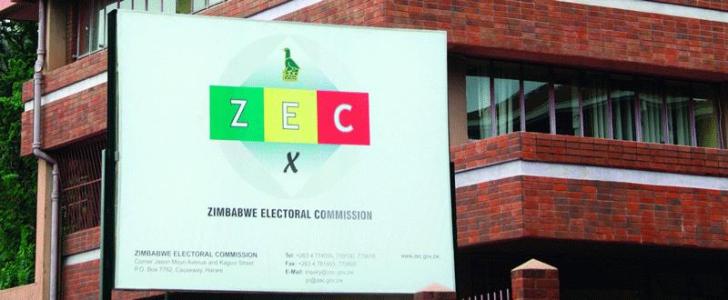News / Local
Zec, FAZ blamed for voter apathy
28 Aug 2023 at 05:56hrs |
385 Views

Two million registered voters did not vote out of the approximately 6,6 million eligible to participate in the recent harmonised elections, with political analysts blaming it on the Zimbabwe Electoral Commission (Zec) and the shadowy group, Forever Associates Zimbabwe (FAZ).
Announcing election results on Saturday evening, Zec said 68,9% of the registered voters turned out to vote.
"About 6 619 691 people registered to vote, 4 561 221 total votes cast and 2 062 290 registered voters did not vote, 92 553 ballots were spoiled and 4 468 668 were valid votes," Zec said.
In interviews yesterday, political analysts blamed the low turnout on the delay by Zec to distribute council ballot papers.
They also fingered the Zanu-PF affiliate and Central Intelligence Organisation-linked, FAZ, for intimidating potential voters.
FAZ operatives were stationed at most polling stations in rural and urban areas conducting what they termed "Exit Poll Survey".
Zimbabwe Election Advocacy Trust executive director, Ignatious Sadziwa attributed the voter apathy to the heavy presence of FAZ at the polling stations.
"We attribute that to heavy intimidation witnessed in most rural areas where FAZ was deployed to scare villagers. Delays in the arrival of voting material in most urban polling stations also discouraged most voters from participating," Sadziwa said.
He said the low turnout was a serious blow to the country's democracy.
"It raises questions about the legitimacy of the election and the ability of Zec to conduct free and fair elections. It also undermines the confidence of voters in the electoral process," he said.
Election Resource Centre legal and advocacy officer, Takunda Tsunga, said the apathy was worsened by Zec's lack of independence in the electoral process.
"While there had been general apathy in the build up to the election, the turnout was worsened by what seems to be systematic administrative efforts by the commission to deny citizens especially in urban areas equal opportunity to vote in the election," Tsunga said.
Political analyst Effie Ncube said the elections were marred by confusion as people failed to find their names in the voters roll.
"People could not vote because they could not find their names in the voters roll, so they could not vote because they were redirected to other polling stations. They had to move from one polling station to another. Some gave up and went back home," Ncube said.
He condemned FAZ for intimidating voters, saying it was a violation of the electoral law.
"No one should be allowed to intimidate anyone, whether they are political parties or non-governmental organisations because it renders elections not free and fair.
"An organisation like FAZ was involved in intimidating people. This reduced elections from being free and fair. People were denied the right to vote freely," he added.
The international and regional communities also condemned the intimidation of voters by FAZ and called on Zec to independently address the issue.
In 2018, elections were marred by massive voter apathy owing to a lack of confidence in electoral processes, among other reasons.
Announcing election results on Saturday evening, Zec said 68,9% of the registered voters turned out to vote.
"About 6 619 691 people registered to vote, 4 561 221 total votes cast and 2 062 290 registered voters did not vote, 92 553 ballots were spoiled and 4 468 668 were valid votes," Zec said.
In interviews yesterday, political analysts blamed the low turnout on the delay by Zec to distribute council ballot papers.
They also fingered the Zanu-PF affiliate and Central Intelligence Organisation-linked, FAZ, for intimidating potential voters.
FAZ operatives were stationed at most polling stations in rural and urban areas conducting what they termed "Exit Poll Survey".
Zimbabwe Election Advocacy Trust executive director, Ignatious Sadziwa attributed the voter apathy to the heavy presence of FAZ at the polling stations.
"We attribute that to heavy intimidation witnessed in most rural areas where FAZ was deployed to scare villagers. Delays in the arrival of voting material in most urban polling stations also discouraged most voters from participating," Sadziwa said.
He said the low turnout was a serious blow to the country's democracy.
"It raises questions about the legitimacy of the election and the ability of Zec to conduct free and fair elections. It also undermines the confidence of voters in the electoral process," he said.
Election Resource Centre legal and advocacy officer, Takunda Tsunga, said the apathy was worsened by Zec's lack of independence in the electoral process.
"While there had been general apathy in the build up to the election, the turnout was worsened by what seems to be systematic administrative efforts by the commission to deny citizens especially in urban areas equal opportunity to vote in the election," Tsunga said.
Political analyst Effie Ncube said the elections were marred by confusion as people failed to find their names in the voters roll.
"People could not vote because they could not find their names in the voters roll, so they could not vote because they were redirected to other polling stations. They had to move from one polling station to another. Some gave up and went back home," Ncube said.
He condemned FAZ for intimidating voters, saying it was a violation of the electoral law.
"No one should be allowed to intimidate anyone, whether they are political parties or non-governmental organisations because it renders elections not free and fair.
"An organisation like FAZ was involved in intimidating people. This reduced elections from being free and fair. People were denied the right to vote freely," he added.
The international and regional communities also condemned the intimidation of voters by FAZ and called on Zec to independently address the issue.
In 2018, elections were marred by massive voter apathy owing to a lack of confidence in electoral processes, among other reasons.
Source - newsday
Join the discussion
Loading comments…































